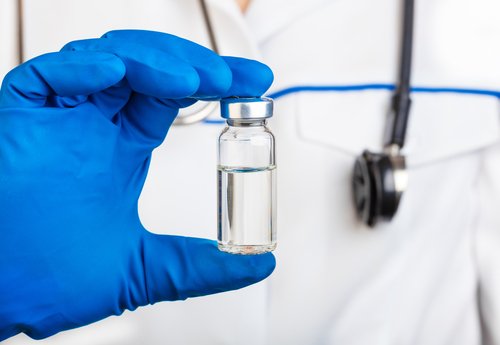GSK Launches Phase 3 Trial of Benlysta, Rituxan Combo for Lupus Patients
Written by |

GSK is starting a Phase 3 trial of Benlysta (belimumab) in combination with Rituxan (rituximab) for treating patients with systemic lupus erythematosus (SLE). The ability of the combination to provide sustained disease control or remission will be tested.
Benlysta is the only approved biological medication for SLE worldwide and is used as an add-on therapy to standard treatment in patients with active SLE. It is a monoclonal antibody that binds B lymphocyte stimulator (BLyS), a protein that stimulates B-cells to develop into antibody-producing cells. It is designed to suppress the production of antibodies that cause SLE.
Rituxan has been used to treat some types of cancer and certain autoimmune diseases – conditions where the body’s immune system attacks its own cells and tissues. It is also a monoclonal antibody, but it targets the CD20 protein on B-cells to kill them.
The pivotal Phase 3 clinical trial (NCT03312907) named BLISS-BELIEVE is recruiting at least 200 participants at five sites in the U.S. and Canada.
Participants with active SLE will be randomized into three groups: Benlysta for 52 weeks plus Rituxan-placebo; Benlysta for 52 weeks and Rituxan (at weeks four and six only); or just Benlysta for the entire 104 weeks of the trial. All patients will also receive standard therapy that may include immunosuppresants, corticosteroids, and antimalarials.
Immunosuppressants will be stopped at week four, corticosteroids will be tapered off to reach prednisone-equivalent doses of 5 mg per day or less by week 26.
The primary endpoint of the study is disease control defined as a Systemic Lupus Erythematosus Disease Activity Index (SLEDAI-2K) score of 2 or less, without immunosuppressants and with corticosteroids at a prednisone equivalent dose of 5 mg per day or less at week 52. The SLEDAI-2K is a measure of disease activity based on a medical examination and laboratory tests.
Secondary endpoints are a SLEDAI-2K score of 0 at week 64 and durable response (maintenance of disease control at week 104) with no treatment other than antimalarials. Safety and tolerability will also be assessed.
“We are delighted to start this study and evolve our research program for belimumab in SLE,” Gijs van den Brink, global head of Immuno-Inflammation Research and Clinical Development at GSK, said in a press release. “Belimumab has already demonstrated its consistent efficacy in reducing disease activity for patients with SLE, with four successful phase III trials.”
“The underlying biology of the disease, combined with the results from a small investigator-sponsored study in severe refractory SLE, provide a strong scientific rationale for initiating this study,” added van den Brink.
“Our aim with this study is to assess whether the combination treatment will not only achieve a state of low disease activity, but potentially also achieve clinical remission in patients living with this chronic and unpredictable disease.”




